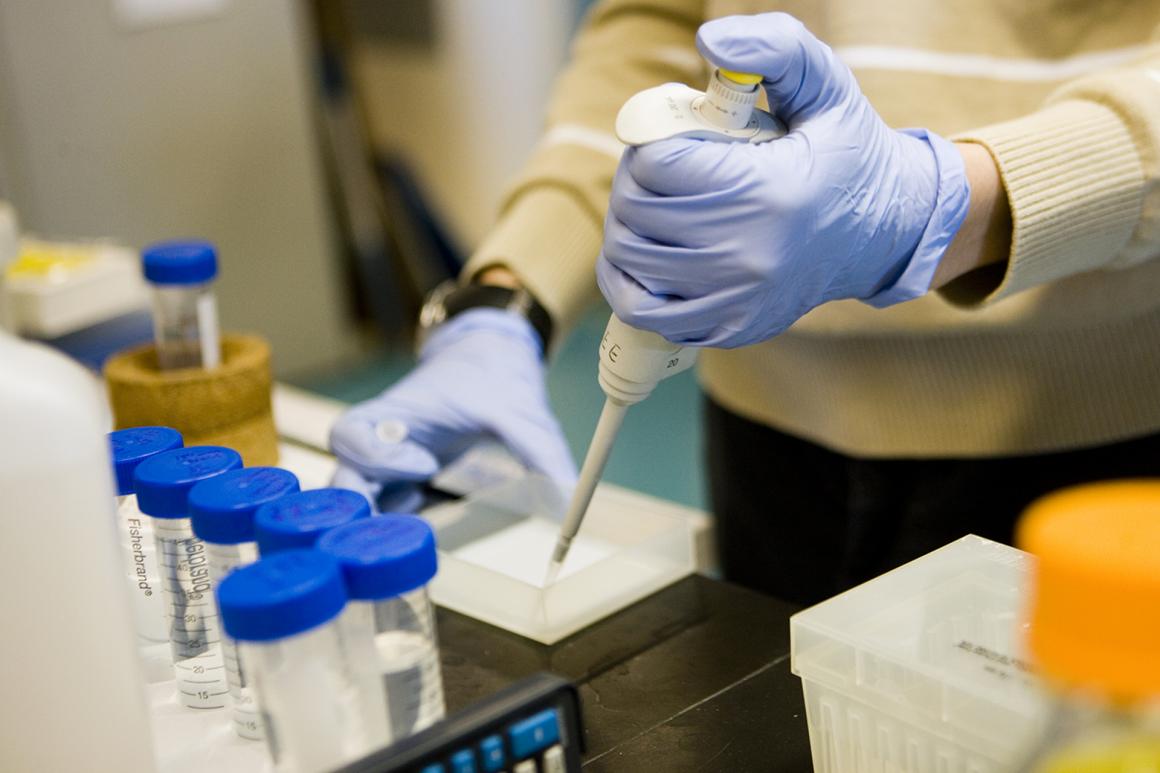Research
Research in the Department of Chemistry encompasses the many diverse interests of the research faculty and reflects the interdisciplinary nature of modern chemical research. While research still draws heavily on the traditional subdisciplines of organic, inorganic, physical, and analytical chemistry, students at Tufts receive a broad-based education that is less constrained by traditional subdisciplinary boundaries.
A number of current research projects illustrate the nature of research at Tufts. These include investigating new classes of fiber optic chemical sensors for use as an "artificial nose", the design of "smart" windows capable of changing their transmissivity with the flip of a switch, research & development of new field analytical technologies capable of rapid analysis of pollutants in the environment, and the use of autonomous analytical chemical laboratories to study in-situ the geochemistry and biological potential of Mars and extreme environments on Earth. Still, other projects focus on uncovering new strategies for the treatment of diabetes mellitus, developing compounds which inhibit gene expression at the RNA or DNA level, understanding the chemistry on a raindrop, synthesizing molecular tweezers, evaluating the global warming potential of CFC substitutes, and discovering new strategies for understanding and controlling chemical reactivity at surfaces.
